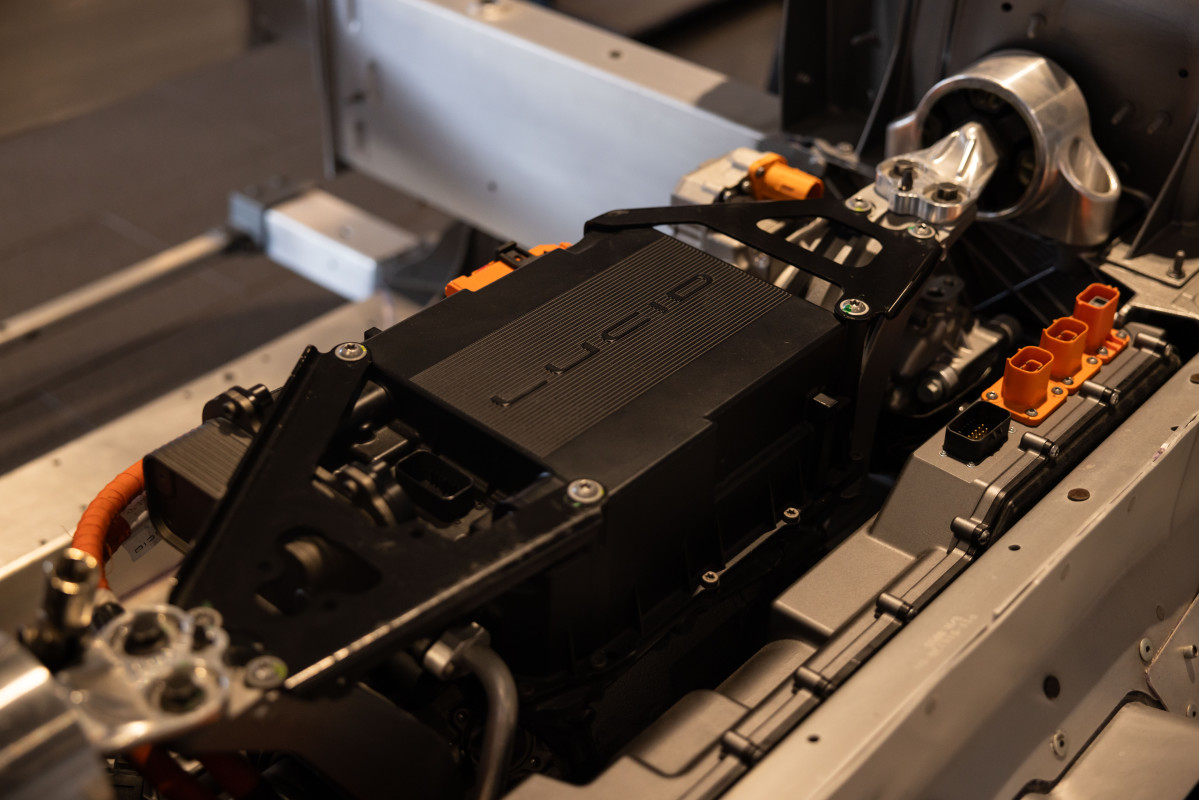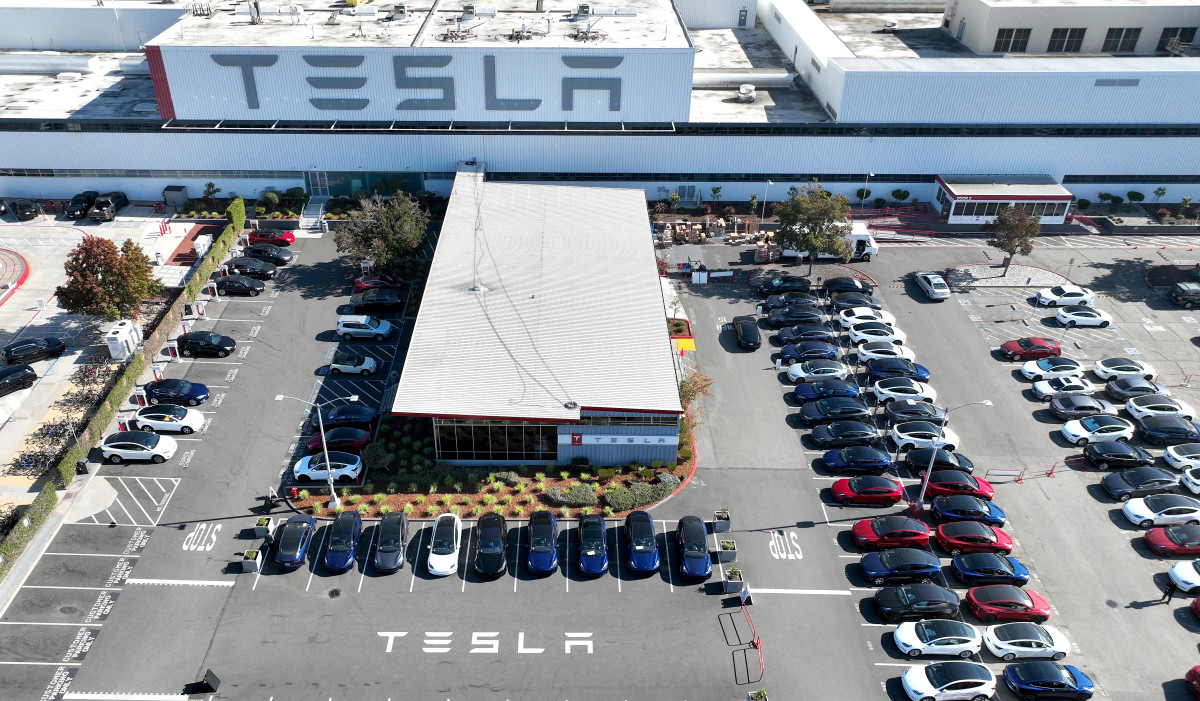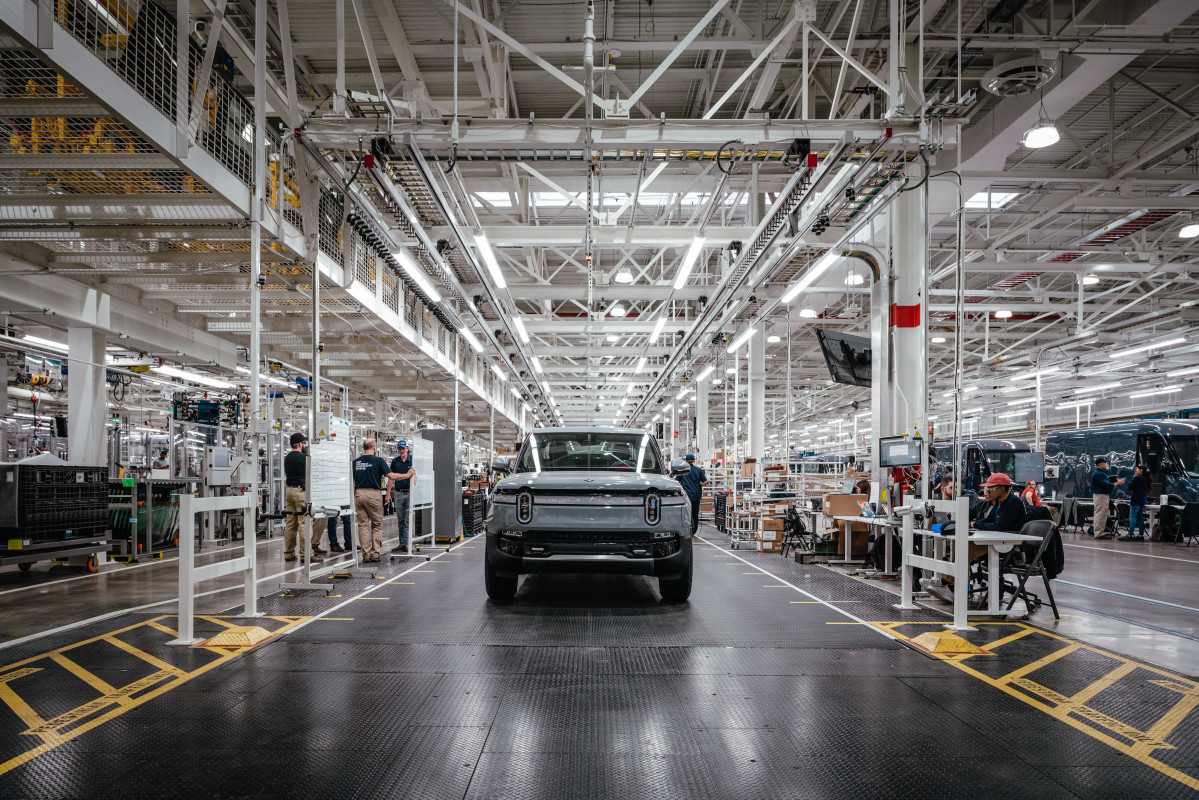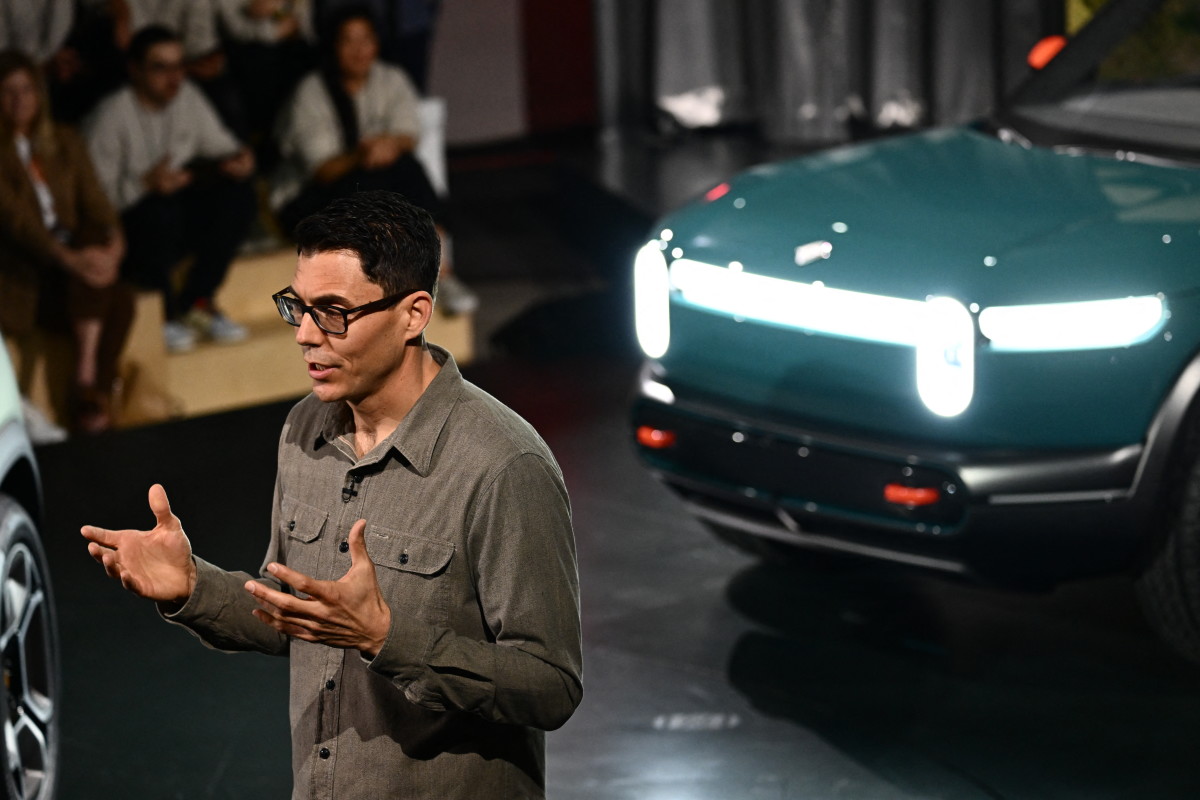
Automakers want to be tech companies now
For over a century, automakers have defined themselves by the vehicles they produce. But now, many are attempting to redefine their identities, transitioning from car manufacturers into technology companies.
Whether it’s Lucid aiming to become the “Intel” of the electric vehicle market, Tesla’s obsession with AI, or Rivian’s Volkswagen-backed push into software-defined cars, the industry is in the middle of a seismic shift. Instead of just building cars, these companies want to sell the technology that powers them.
Related: 2025 Mercedes-Benz GLC PHEV review: the best plug-in SUV yet?
Lucid: more than just a car company
Lucid Motors CEO Peter Rawlinson has a clear vision: He doesn’t just want to sell cars—he wants other automakers to use Lucid’s technology. Speaking recently at the BloombergNEF Summit, he laid out an ambitious future where Lucid’s revenue is driven primarily by licensing deals rather than vehicle sales.

Bloomberg/Getty Images
“I’d love it to be 20-80. Twenty percent doing cars, 80% licensing,” Rawlinson said to InsideEV at the summit. He envisions Lucid supplying battery and motor technology to legacy automakers, much like Intel provides processors to the computing industry.
Related: 2024 Nissan Z NISMO Review: The wild child of affordable performance
Lucid vehicles are like one big display model
Lucid’s vehicles, like the Air sedan, serve as a “shop window” for its technology, the company’s CEO said. Lucid has already secured a $450 million deal with Aston Martin for its battery and motor systems, and Rawlinson believes more automakers will follow. The strategy hinges on efficiency, as Lucid’s powertrains extract more range from smaller battery packs, a key advantage as automakers seek to cut EV costs.

Bloomberg/Getty Images
The long-term goal? To have automakers manufacture Lucid-designed components under license while Lucid retains control over the software. Rawlinson compares it to Microsoft’s business model: “You flash your Microsoft Office—ka-chunk—Bill Gates gets his royalty, doesn’t he? And I want to be like that.”
However, the challenge lies in convincing traditional automakers to rely on an outside supplier for such a critical aspect of vehicle production. Many legacy brands, particularly those with deep R&D budgets, may resist depending on Lucid’s tech and opt instead to develop in-house solutions. If Lucid fails to secure enough partners, its licensing ambitions may struggle to materialize.
Related: BYD’s arrival in South Korea just forced Hyundai’s hand
Tesla’s AI obsession
Tesla has been making headlines for years, but its latest earnings call left investors puzzled. Instead of discussing cars—Tesla’s primary source of revenue—CEO Elon Musk spent much of his time talking about artificial intelligence.

Mark Leong/The Washington Post/Getty Images
Musk declared that Tesla would “go ballistic” on AI, signaling a shift in focus. This comes despite the fact that Tesla’s core auto business is struggling, with vehicle production and deliveries both down year-over-year.
The company has long promised self-driving technology, yet its Full Self-Driving system still requires human supervision. Despite this, Musk continues to push Tesla toward AI-first initiatives, including a robotaxi service and the Optimus humanoid robot. Neither generates revenue today, but they dominate Tesla’s messaging.
Related: Tesla sales plummet across Europe – is Musk costing Tesla money?
Developing software for people who want cars
Morgan Stanley analyst Adam Jonas was puzzled by the apparent disconnect between Tesla’s business and Musk’s ramblings. “Is this a car company? Almost no discussion of the core auto business,” Jonas wrote in a note to clients. “While around 80% of the company’s revenue is (still) automotive, the discussion during the prepared remarks and Q&A was almost entirely around autonomy, AI, and robotics. We see a pattern here.”

Justin Sullivan/Getty Images
Some investors may love the vision, but with Tesla’s financial performance slipping, the question remains: Can Tesla afford to act like a tech company when it still needs to sell cars? The risk for Tesla is that while AI development is potentially lucrative, there is no clear timeline for when these initiatives will become profitable. If the company shifts too much focus away from cars, it could find itself struggling to maintain its dominant position in the EV market.
Rivian and Volkswagen: A new kind of joint venture
While Rivian, unlike Tesla, still appears enthusiastic about actually making cars, it is also using its technology to partner with traditional automakers. Its recent $5.8 billion joint venture with Volkswagen is proof of that.

Bloomberg/Getty Images
The deal gives Volkswagen access to Rivian’s advanced electrical architecture, simplifying manufacturing and reducing vehicle weight. More importantly, it moves Volkswagen toward software-defined vehicles, an area where legacy automakers have struggled. With over-the-air updates and a centralized computing platform, Rivian’s tech could make Volkswagen more competitive in the EV market.
Other automakers have taken notice. Rivian Chief Software Officer and joint venture co-CEO Wassym Bensaid said that multiple companies are now “knocking on the door” to explore partnerships. The trend is clear: automakers that lack strong in-house technology solutions are increasingly looking to tech-savvy startups for help.
Related: Could the 2025 Genesis Coupe mark the return of a cult classic?
Why automakers want to be tech companies
The push toward technology isn’t just about innovation—it’s about survival. Traditional automakers are facing slowing EV demand, shrinking profit margins, and rising competition from Chinese manufacturers. Meanwhile, software and AI promise recurring revenue streams that car sales can’t match.

PATRICK T. FALLON/Getty Images
Licensing technology, whether it’s Lucid’s powertrains, Tesla’s AI, or Rivian’s software, allows automakers to diversify their business models. A well-executed tech strategy can generate revenue without the resource-intensive process of building and selling cars. It’s why even legacy giants like General Motors and Ford are investing heavily in software, data services, and autonomous driving.
GM has set ambitious goals for its software revenue, aiming to generate $20-25 billion annually from software services by 2030. Ford, meanwhile, is leaning into digital services through its BlueCruise hands-free driving system and subscription-based features. These companies recognize that the future of the industry lies in recurring revenue streams, not just vehicle sales.
Related: 2024 Lincoln Nautilus review: Elevating the American luxury SUV
Final thoughts
The auto industry is at a crossroads. Companies that once prided themselves on engineering combustion engines are now racing to become leaders in AI, battery technology, and software-defined vehicles. Whether through licensing, joint ventures, or internal R&D, automakers are no longer just car companies—they’re tech companies in disguise.
The question isn’t whether the industry will change. It’s already happening. The real question is: Which companies will successfully make the transition—and which will get left behind?
Love reading Autoblog? Sign up for our weekly newsletter to get exclusive articles, insider insights, and the latest updates delivered right to your inbox. Click here to sign up now!
Related: 2025 Lexus UX300h review: A compact SUV that punches above its weight


